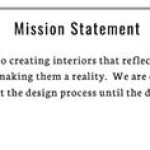Discovering the Essential Aspects of a Diploma in Interior Design
Embarking on a journey in interior design requires a comprehensive understanding of its fundamental principles and practices. A Diploma in Interior Design delves into the core aspects of this dynamic field, equipping you with the knowledge and skills to transform spaces into aesthetically pleasing and functional environments.
1. Design Principles and Theories
The foundation of interior design lies in understanding design principles and theories that guide the creation of harmonious and visually appealing spaces. You will explore concepts such as color theory, scale and proportion, and spatial planning, empowering you to create spaces that evoke specific emotions and ambiance.
2. Interior Design Techniques
Beyond theoretical knowledge, the diploma program immerses you in practical interior design techniques. You will learn how to select materials, furniture, and accessories that complement the desired style and functionality of a space. Lighting design and space planning also play a crucial role, as you learn to optimize natural and artificial light and create efficient floor plans.
3. Drawing and Visualization
Effective interior design requires the ability to visualize and communicate your ideas clearly. The diploma program includes courses in drawing and visualization, where you will develop sketching and rendering skills to present your designs professionally. You will learn to create floor plans, elevations, and 3D models to convey your design intent.
4. History of Interior Design
Understanding the evolution of interior design helps you appreciate the styles, influences, and trends that have shaped the industry. The diploma program explores the history of interior design from ancient times to contemporary styles, exposing you to the rich tapestry of design movements and their impact on modern practices.
5. Sustainability and Ethics
In today's environmentally conscious world, sustainable practices are essential in interior design. The diploma program emphasizes environmentally friendly materials, energy efficiency, and ethical sourcing. You will learn how to design spaces that promote well-being, minimize environmental impact, and meet sustainability standards.
6. Project Management and Business Practices
Professional interior designers require a solid understanding of project management and business practices. The diploma program covers aspects of project planning, budgeting, timelines, and effective communication with clients. You will also develop entrepreneurial skills, learn about industry standards, and explore career opportunities.
Conclusion
A Diploma in Interior Design provides a comprehensive foundation for a rewarding career in this dynamic field. By mastering the essential aspects of design principles, techniques, drawing, history, sustainability, and business practices, you will be equipped to create transformative and inspiring spaces that enhance the lives of individuals and communities.

Custom Diploma Frames Certificate Framing Success Interior Designs Institute Frame With Black Gold Mat

Quick Read How Important Is An Interior Design Degree

Diploma In Interior Design Technology Isdm

Dayanand College Of Interior Designing Design In Latur

Diploma In Interior Designing 2 Years Didt Campus

Undergraduate Diploma In Interior Design 3 Years

Diploma Courses In Interior Design Admission Process Fees Eligibility Career Prospects Collegedekho

Charlotte Knight On Linkedin Interiordesign Interiordecor Interiordesigner 15 Comments

Course Review The Interior Design Institute Idi

Make Your Career With Diploma In Interior Designing Amor Design Institute








